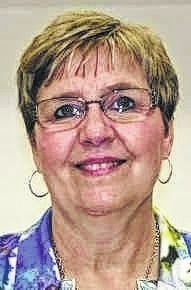In 1987 Bell Atlantic, now Verizon Communications, unleashed Caller ID in a market trial in Hudson County, New York. That technology is now nearly universal on every landline telephone and cell phone in the United States. We can now see what number is calling us and decide if we want to answer. If we miss a call, it also allows us to see who has called. A great tool, right?
Well, yes and no!
First, an example for the “YES.” My cell phone rang the other day, and I wasn’t able to answer it in time. The number on the caller ID was 38598078. The caller did not leave a message. If you look at the phone number, it doesn’t make sense. There’s no area code and not enough numbers to call back (which I wouldn’t do by the way). By recognizing it was not a legitimate number and not calling back, I did not allow a potential scammer to even talk to me.
Caller ID allows you to screen your calls, answering the numbers you recognize and ignoring the ones you don’t. At the BBB, we receive phone calls constantly from people that answered a call from a number they didn’t recognize and, by doing so, have fallen victim to a scam.
The latest example is one where a victim received a phone call early in the morning, usually between 2 and 5 a.m. from the number 6949725. The caller states he is with a credit or debit card company such as Visa or MasterCard. They go on to say that your card has been locked, is invalid, compromised or frozen.
People receiving the phone calls are usually awakened from a sound sleep and are somewhat disoriented. The scammer will ask for your credit card number, expiration date and the security code on the back of your card, stating they need to verify your information. A surprising number of people furnish the scammer with that important, private information with disastrous results.
Now an example of the “NO.” Caller ID has been responsible for the almost compulsive need for people to find out why someone called on a missed call.
Fraudsters are now using this compulsive curiosity in a scam called “One Ring.” Unlike the first example, people are receiving calls from phone numbers with three-digit area codes that appear to be domestic. The phone only rings once, not giving the consumer time to answer the call. Victims call the number back and fall prey to the scammers.
The return phone call is connected to an international hotline that charges a fee for just connecting. Once connected, the operator keeps the victim on the line as long as they can, running up exorbitant per minute international charges, which you don’t find out about until you receive your bill. As mentioned, these phone calls appear to be from U.S. locations. The most common numbers are “876” from Jamaica, “649” from the Turks and Caicos, “284” from the British Virgin Islands and “809” from the Dominican Republic!
We have two strong suggestions:
1. If you receive a phone call from 694-9725, DO NOT ANSWER IT! It is a scam.
2. If you don’t recognize the number, simply do not answer the phone, and let it go to voicemail. If you don’t recognize the person leaving the voicemail, double check with the BBB or websites to make sure you are calling back a legitimate number.
As you see, Caller ID can be used to protect you or to harm you. It’s up to you! Be smart!






